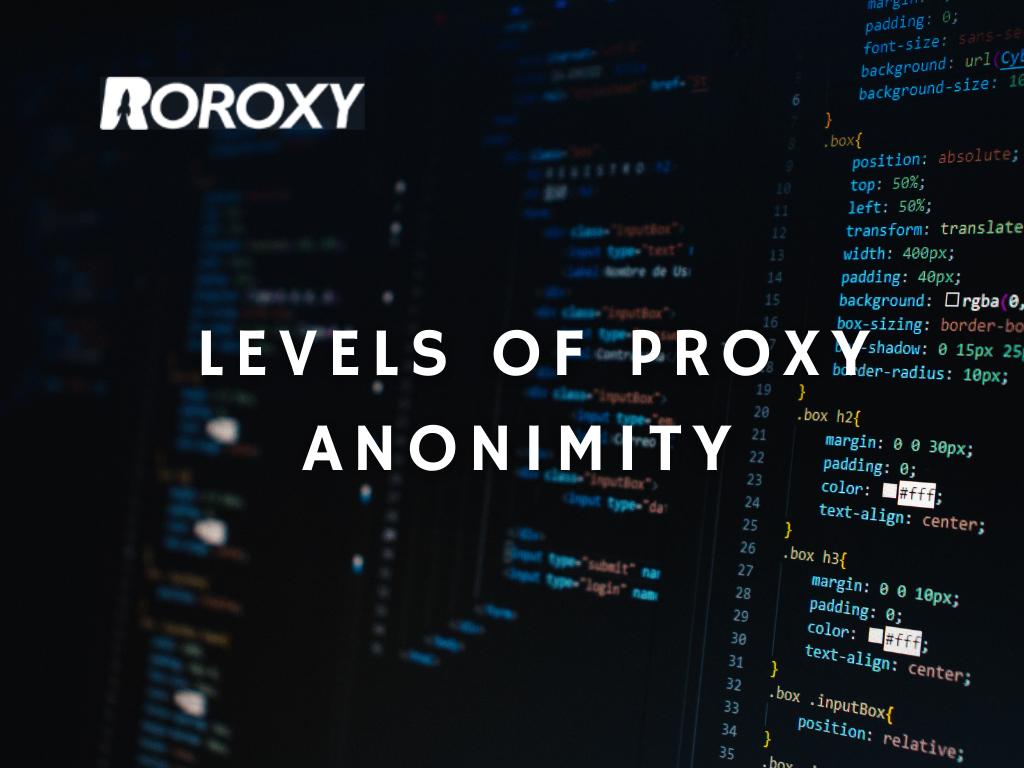In the ever-expanding realm of cybersecurity and online privacy, proxy servers have emerged as valuable tools for users seeking to safeguard their digital footprint. These intermediaries stand guard between users and the vast virtual landscape, offering different levels of anonymity. But what exactly are these levels, and why should you care? Join us as we delve into the world of proxy level anonymity and shed light on the nuances of transparent, anonymous, and elite proxies.
1. Transparent Proxies: Revealing the Unseen
Imagine walking through a transparent glass door – you’re visible to everyone on the other side, even though there’s an obstruction in between. Transparent proxies operate in a similar fashion. These proxies do not alter request headers, which means your original IP address is exposed to the websites you visit. While they serve purposes like cache optimization, they offer no real privacy protection. Transparent proxies are commonly found in corporate networks to enhance data delivery, but they fall short in shielding your online identity.
2. Anonymous Proxies: The Veil of Disguise
Stepping up the anonymity ladder, we encounter anonymous proxies. These intermediaries modify request headers to mask your IP address, allowing you to browse the web with a degree of privacy. However, the effectiveness of anonymous proxies can vary widely. Some might not completely conceal your identity, inadvertently exposing vulnerabilities. Selecting a reputable proxy provider is paramount in this tier, as the difference between adequate protection and potential compromise lies in the provider’s competence.
3. Elite Proxies: The Guardians of Privacy
At the zenith of proxy level anonymity, we find elite proxies, also known as high-anonymity proxies. These sentinels excel at concealing your IP address and protecting your online persona. Elite proxies not only alter request headers but also ensure that your identity remains shrouded from prying eyes. These are the tools of choice for those who require utmost privacy, such as journalists or activists navigating hostile online environments. Nonetheless, even elite proxies might not render you completely impervious to advanced tracking techniques.
The Variability in Proxy Levels
It’s important to recognize that not all proxies within a given level of anonymity are created equal. While a proxy might claim to be “anonymous,” its actual performance in safeguarding your identity can vary. Some anonymous proxies might inadvertently leak sensitive information due to misconfigurations or poor maintenance. Therefore, the credibility and reputation of the proxy provider play a pivotal role in ensuring the efficacy of the chosen proxy.
Choosing Your Anonymity Arsenal
As you venture into the realm of proxy anonymity, consider your needs and priorities. Transparent proxies might serve you well within controlled corporate networks, where privacy might take a backseat to content delivery speed. On the other hand, anonymous proxies can offer a level of cover for everyday browsing, provided you’re cautious about your provider’s credibility. For those operating in environments where privacy is paramount, elite proxies could be your armor of choice, but always remember that no solution is foolproof.
In a world where personal data has become a valuable commodity, proxy servers stand as guardians of privacy. However, each level of anonymity comes with its trade-offs, and the reliability of your chosen proxy provider matters greatly. Balancing your need for privacy with the convenience of use is essential. Furthermore, combining proxies with encryption technologies and employing virtual private networks (VPNs) could create a formidable shield against digital surveillance.
Stay informed, stay cautious, and remember that your digital identity deserves protection. With proxy level anonymity as your ally, you’re better equipped to navigate the intricate web of the online world while preserving the privacy you rightfully deserve.
